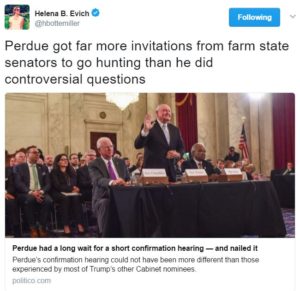What’s up with meat substitutes?
I’ve never understood why people who do not want to eat meat for reasons of health, animal welfare, environmental protection, or religion want to eat meat substitutes when vegetarian and vegan diets can be delicious on their own.
Because one of my food rules is “never eat anything artificial,” meat substitutes are not on my food radar.
Nevertheless, I am fascinated by the intense interest of venture capitalist investors—and many eaters—in plant-based or lab-based concoctions that look and more-or-less taste like meat (I’ve tried as many of them as I can, but find them all too salty).
Global Meat News
The industry newsletter, GlobalMeatNews.com, is a great place to keep up with what’s happening with meat substitutes. From it, I learn:
- UC Berkeley (my alma mater) has started an alt.meat lab funded by Givaudan (maker of flavors and fragrances), in partnership with the Good Food Institute.
- The size of this market is estimated to reach $5.2 billion by 2020
- Hampton Creek is in talks to license its lab-grown meat to big meat firms.
- Pork grown in a lab nearer to reality
- Chef cooks the world’s first lab-grown chicken
- First lab-grown meat made in Russia
- Lab-made meat rebranded ‘clean meat’ to address ‘yuck’ factor
- Lab-grown meat to ‘revolutionise’ food sector
- SuperMeat wants you to produce lab-grown chicken
- Tyson Foods buys stake in Beyond Meat start-up
Impossible Burger
And then, there is the fuss over this lab-based substitute so realistic that it appears to “bleed.” It has had some difficulty with the FDA over the safety of this ingredient.
- The New York Times article on Impossible Burger’s FDA situation
- The FDA documents related to Impossible Burger
- An open letter from Impossible Burger’s CEO, Pat Brown
- Complaints from animal welfare advocates about how the “bleeding” ingredient is tested
- Objections from Friends of the Earth (FOE) about the safety of this ingredient and the fact that it is vat-based and GMO.
—Impossible Burger FOIA documents
—On-line searchable database of synthetic biology derived ingredients, including Impossible Food’s “heme”.
–FOE website on the risks of synthetic biology to health and environment.
My opinion (for what it’s worth)
If people would rather eat these things than real meat, that’s fine for them. I’m not concerned about the safety issues; the probability of this protein’s being unsafe seems small.
- Should we all be eating less meat? Yes, for reasons of health and environment.
- Will these products help us do that? Maybe.
- Will they make lots of money for investors? It sure looks that way.
I will be following this topic with great interest. Stay tuned.




